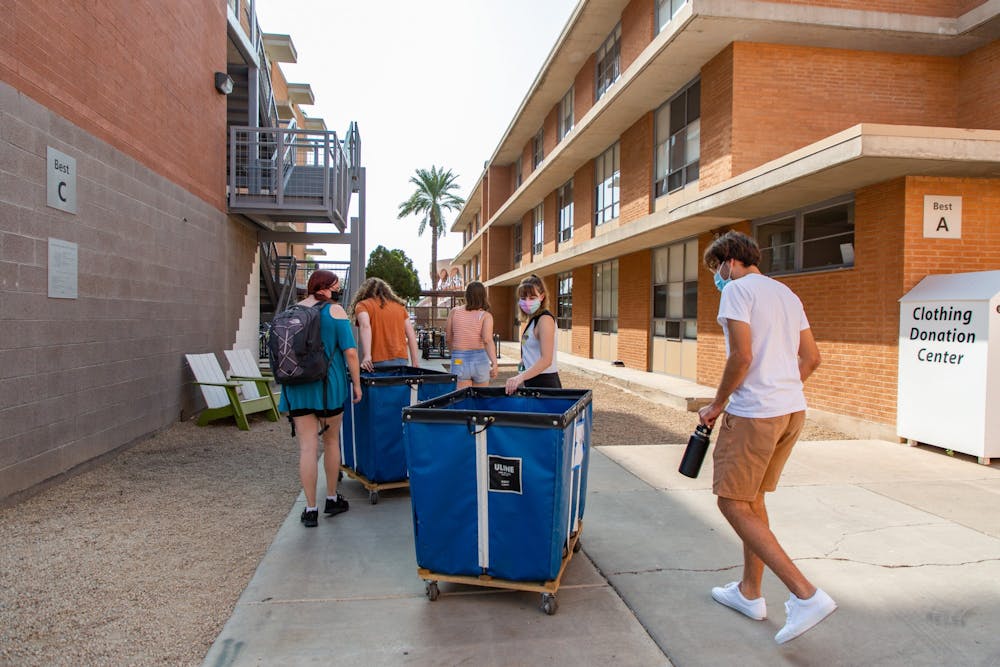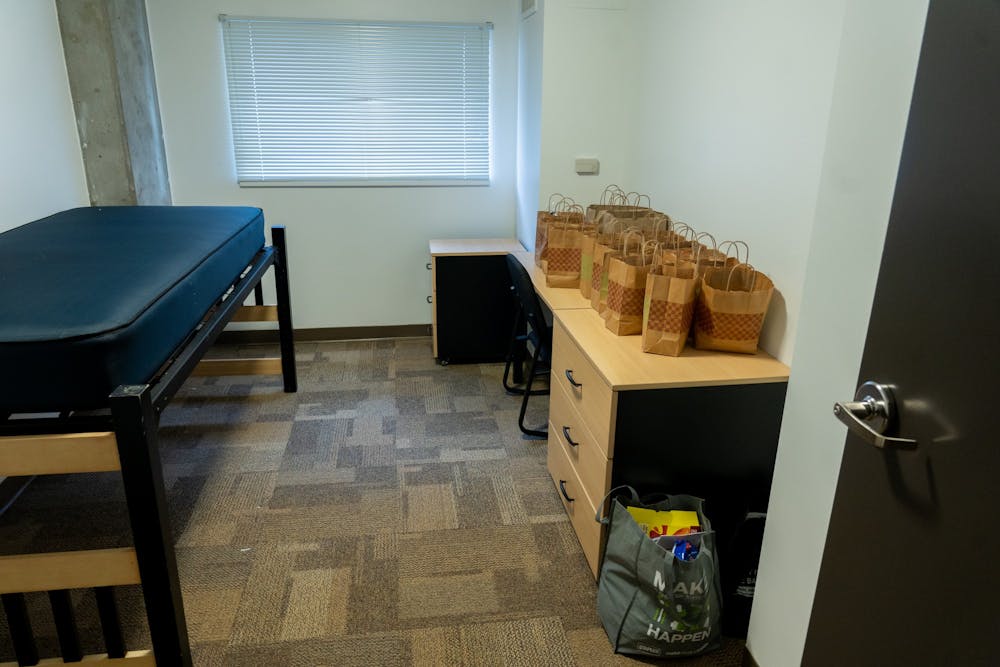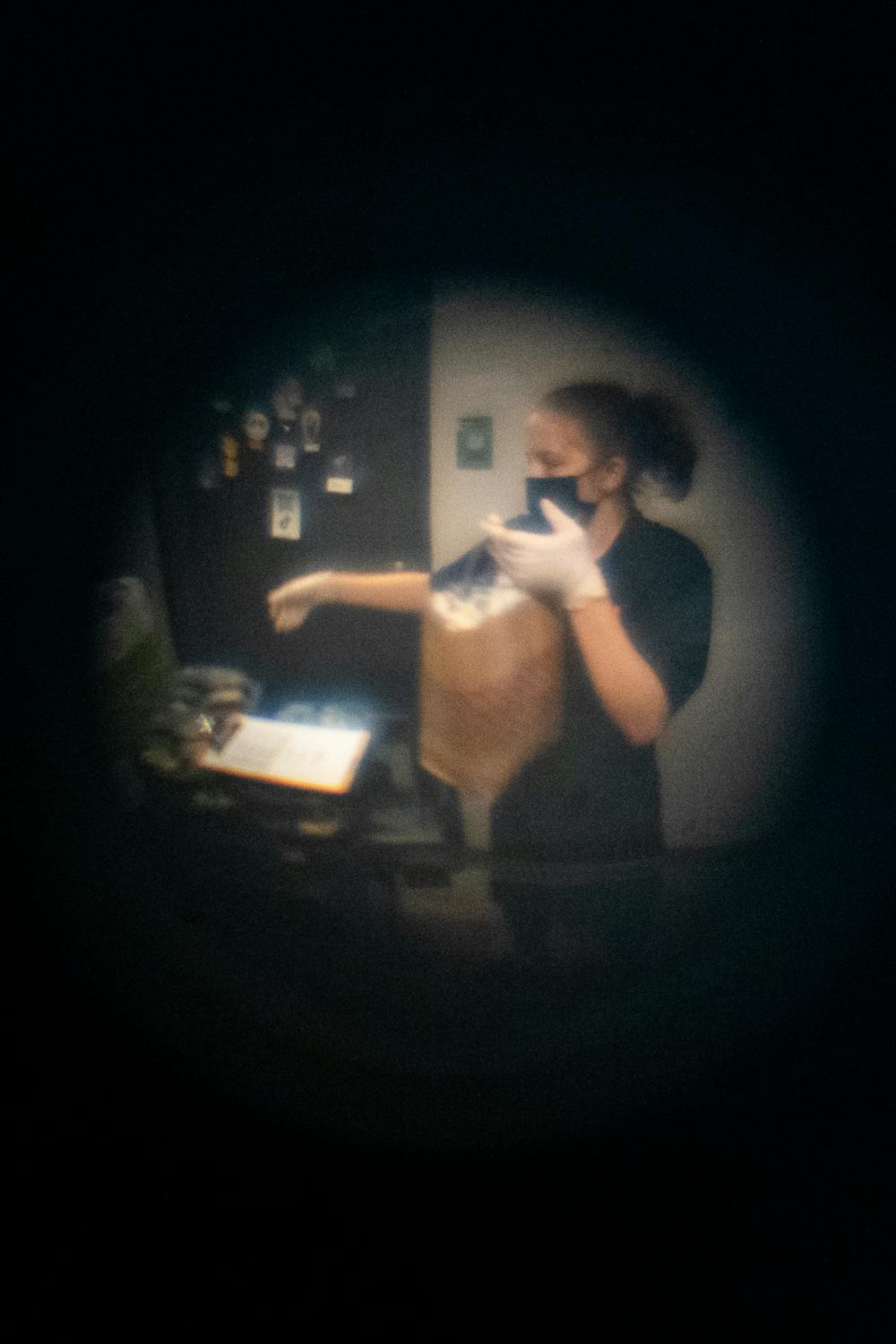Editor’s Note: This letter to the editor was published anonymously to protect the authors from retaliation. Their identities and job positions have been verified by The State Press.
As the number of COVID-19 cases in Arizona continues to grow, the ASU Community of Care Coalition, a group of faculty, staff and students formed last summer in opposition to ASU reopening for in-person instruction, remains deeply concerned about the harmful impacts of ASU’s pandemic policy on University workers.
The Community of Care Coalition’s town hall, hosted on Sept. 11, made it clear that ASU has not extended its “care” to all workers. The University community should not only be asking, but demanding to know how workers have been affected by their rushed return to campus and ASU's less than thoughtful implementation of COVID-19 policies.
The Multicultural Solidarity Coalition was correct when it stated that ASU terming itself a “community of care” was an act of violence. The return to campus already put marginalized communities at greater risk and was further compounded by the exploitation of working people.
While ASU claimed to be prepared to care for and house returning undergraduate students, the experiences of our undergraduate community assistants, who assist in coordinating resident hall activities, demonstrate that this was not the case.
CAs have submitted these stories in solidarity with the Community of Care Coalition to shed light on the conditions undergraduate student workers were forced to live and work in, as well as ASU’s failure to treat workers with dignity, care and respect.
Lack of communication fosters unsafe, draining environment for student workers
From the beginning, ASU’s upper housing administration excluded CAs from decision making processes and were less than transparent about how COVID-19 and housing related decisions would be made.
The problems began as soon as CAs returned to campus on July 30. As a result of ASU’s extended move-in window, the usual CA training of 14 days was reduced.
Moving students in is always a massive task, but moving students in during a pandemic — one would believe — should lead to the need for more training, not less. However, CAs received little-to-no training on new housing policies that would be put in place to maintain CDC recommendations, or how students who became ill would be cared for while in isolation.
One of the few policies that was clearly communicated to CAs by upper housing was the guest policy, which stated that students were not able to enter any dorm room other than their own. When ASU continued to advertise messaging that guaranteed the “college experience” to students living on campus, many parents questioned how the guest policy reflected that promise.
CAs were tasked with explaining this to parents, who were often rude and abusive when insisting their expectations be met. Many CAs, who had to directly deal with the consequences of the University’s poorly communicated expectations, felt there was a significant lack of support from upper housing.
In response to misinformed parent complaints, the guest policy was changed so that students could visit any room within their complex. This change in policy outraged many CAs because not only was the decision made without consulting CAs, it placed their health and well-being at risk.
Caring about one’s community means including all affected members in the decision making that will impact their daily lives. Caring about one’s community means placing actual safety over the illusion of safety which has been used to maintain ASU’s bottom line. Care, not profit, must be the guideline for how we keep each other safe.
This illusion of safety was also made clear by ASU’s strict, and inaccurate, interpretation of the Health Insurance Portability and Accountability Act, or HIPAA. At ASU this semester, HIPAA has been construed to mean that when a student contracts COVID-19, they are not required to tell anybody around them, even if their suitemates, friends, classmates, or CAs may have been exposed to the virus.
This contributed to an environment in which CAs had no idea which of their residents were COVID-19 positive, who still lived in the dorms, who had been moved to isolation dorms, or where new students that had moved in from other communities were.
It was also unclear if sick students had anybody even checking up on them. One CA explained their experience like this:
“Sick students would get meal deliveries two or three times a day, and some students would not pick theirs up from the hallway. There was a specific hallway in my building that had so many bags in the hallway it reminded me of a ghost town. Looking down the hall, all you could see was these brown paper bags with food from the past five days molding in them. It always made me wonder if that student was even alive. Why are they not opening their door? What are they eating? In addition to the lack of policy enforcement on campus, a lot of the things that I have witnessed working here have been traumatizing for me. These bags of food in the hallway, for me, was one of them.”
While another CA reported:
“I had an experience where a student on my floor had tested positive for COVID-19 and was not able to move into isolation dorms because they were all full. This student had to continue to live with her roommate and suitemates, although those three students were all healthy and safe. The other students ended up catching COVID-19 from their roommate because of ASU’s inability to provide a safe space for them or a way for them to separate from their sick suitemate. Dorm spaces on campus are incredibly small, it is impossible to live with somebody with a very contagious disease without catching it yourself. ASU completely broke their promise about providing isolation spaces for the students, which meant nobody was safe from the virus on campus.”
These situations are unacceptable, both for our CAs and for the students who were sick with the virus. Our dormitories should not resemble ghost towns, and the college experience should not leave students and student workers traumatized.
Vice President of Student Services Joanne Vogel stated at a University Senate meeting on Sept. 21 that CAs would receive additional training and support regarding “processes and relational aspects.”
To date, no such training has been communicated or scheduled. During the meeting it was also stated that CAs were “given a choice,” about whether or not they wanted to remain CAs during the pandemic.
For many, it was not much of a choice, as many CAs are international students, poor and working class students, and even houseless students who rely on the housing stipend their job provides, to have a place to live while attending school.
If leaving your job means losing your housing, that is not a choice, that is coerced compliance.
CAs are a unique and integral part of the ASU experience, and they are students, as well as workers. Worker concerns and solutions should be genuinely listened to and acted upon, not placated with endless Zoom meetings that subsequently ignore our ideas.
When workers do attend these meetings, they are belittled, interrupted, invalidated and no meaningful changes are made, but if we don’t attend these meetings, workers are told that we are not voicing our concerns.
The vast miscommunication and lack of accountability on ASU’s campuses cannot go on any longer. These problems must be addressed head-on as Arizona's case count continues to rise, and no clear plan appears to be in place for when students return next semester.
ASU undergraduate community assistants stand in solidarity with the Community of Care Coalition and are calling for ASU leadership, especially within housing, to realize that working cooperatively with workers creates a much better and safer environment for everyone.
ASU cannot call itself a community of care until it treats its most vulnerable members with dignity, care, and respect.
Editor’s Note: The opinions presented in this letter to the editor are the author’s and do not imply any endorsement from The State Press or its editors. This letter to the editor was published anonymously to protect the authors from retaliation. Their identities and job positions have been verified by The State Press.
Want to join the conversation? Send an email to opiniondesk.statepress@gmail.com. Keep letters under 500 words and be sure to include your university affiliation. Anonymity will not be granted.
Like The State Press on Facebook and follow @statepress on Twitter.







